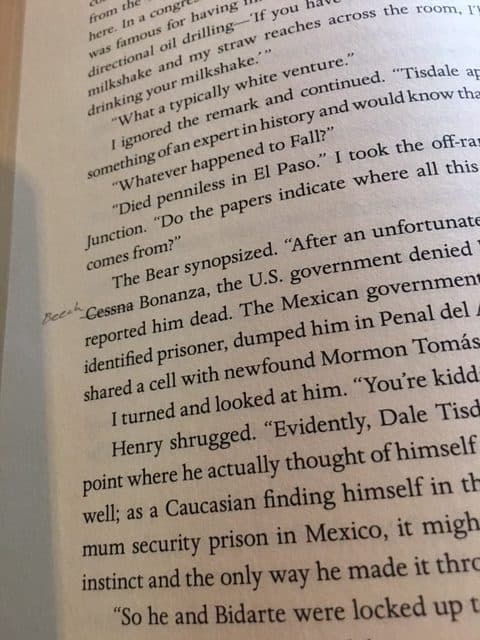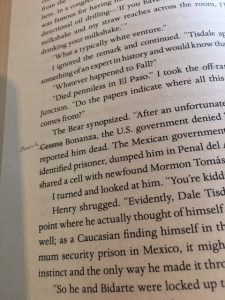I’m reading a Walt Longmire mystery by Craig Johnson. The bad language aside, I really like his books. He does a fabulous job with characters. Walt and Henry Standing Bear share one of my most favorite bromances. However, right now, I’m a little peeved because a previous reader has kindly shared with me—and anyone who checks out A Serpent’s Tooth from John Igo Branch Library—some of the errors Craig Johnson made in this book. 
As a reader, I’m really irritated. Not at Johnson, but at the reader who made these notes. Every time I come across one, I’m pulled from the story. I’m not an expert on either topic so I would’ve read blithely on, unaware of the error had this know-it-all not pointed them out. As a writer, I keep thinking, yikes, has someone done this to one of my books?
Being a fiction writer can be a tough gig. You have to know a little about a lot of topics. I’ve flown to Missouri and driven hundreds of miles to research all three of my Amish series. I’ve watched Youtube videos of mares giving birth to foals and bugged my farming relatives to fact check my horse training scenes. I’ve interviewed chicken farmers and

saddle makers. I’ve learned about avian flu, beekeeping, saddle making, shoeing horses, Amish weddings, Amish funerals, Amish courting rituals, vegetable gardening, canning, how Amish select their church elders, and most recently, how to get a body of a loved one back from El Salvador. I try very hard to get the details right.
All writers do, but sometimes we make mistakes. At a recent meeting of my local writers’ group, a fellow novelist said she got dinged for describing fireflies in Utah. Apparently there are none. Who knew? I once had an Amish church district with two ministers. It seems there are never two, only one. I remember commiserating with my photographer husband when I read a book in which the main character was a TV news journalist who kept talking about filming stories (they were videotaped in those days). An agent blogged that a reader told him she stopped reading a book because a writer had a flower blooming in the wrong season. All the author had to do was google the flower to know, the reader argued.
Somet
Sometimes, despite my best efforts, I make mistakes. Sometimes errors make it past conscientious line editors and proofreaders even after they’ve made themselves cross-eyed doing their best to catch every last one.
As a reader, I desire a story that completely wraps me up in a wonderful fictional world. As a writer, I want to create that wonderful fictional world.
So do readers like me a favor. Don’t highlight errors in library books. Let future readers like me, who don’t know this stuff, enjoy the story, oblivious to whether a Bonanza is a Cessna or a Beech. Grin to yourself and say, tut-tut, or tell your husband/wife.
Or let writers like me know via email. I’ve had a reader or two email me to tell me about a typo in one of my books. This is good to know. It can be corrected in future printings.
Here are my questions for readers: What are your thoughts on writers who get a detail wrong? What was the funniest factual error you’ve read? Or the most egregious? Would you feel the urge to write a note in a book for future readers? Would you stop reading a book because you found a factual error in it? Thanks for sharing!


